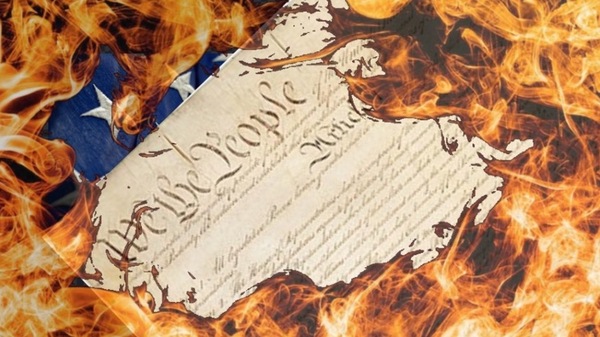
by Carl Nelson
Dick Morris noted, on one of his podcasts, that it was not our Constitution with its Bill of Rights which insured the greatness of the United States as a nation – but rather it was the framer’s crafting of a government from a “balance of powers” that insure our founding documents were more than mere words on paper. After all, he noted, tyrannies around the world boast the much the same lofty sounding, founding charters. And he recited several articles from the Constitution of the Russian Federation which mirror our own.
Nevertheless, I’m not sure this is entirely true, as Article 10 of the Constitution of the Russian Federation holds that: “State power in the Russian Federation shall be exercised on the basis of its division into legislative, executive and judicial authority. Bodies of legislative, executive and judicial authority shall be independent.” – Google
So what went wrong? Perhaps we need look no further than Russian Federation, Article 6.
“What was Article 6 in Russia?
While the rest of the constitution theoretically assured the public freedom of speech, freedom of assembly and freedom of press these rights were neutered by the reservation of article 6 that the Communist Party of the Soviet Union (CPSU) was the “leading and guiding force of the Soviet society”. – Google
In other words, all of the disputative matters had already been settled. (No need really, for the other articles, that is, for the rest of the document.)
This is essentially the state of affairs in One Party administrations – being foisted upon us by the Democrats here in the US – and in ‘perfect democracies’ around the world. We are watching as an administration, in which all of the disputative matters have already been settled, cements itself impervious to the public will, largely by assigning much of its coercive powers to proxy players (corporations, federal agencies, world agencies) outside citizen jurisdiction – so that even protests from within the party are rendered powerless.
This is certainly a most complete tyranny, which they (whoever is manning the levers of power) are relying on an all prescient AI to manage, but as these rulers whim would dictate. So that…as Walter Cronkite would sum up, on closing:
“And that’s the way it is.”








5 Responses
When it comes to the Soviet Union (of which I can speak with some authority), it would never have occurred to anybody that the constitution meant anything (in fact, that constitution could meant anything). Constitution was a thing that a country was supposed to have — like a flag or an anthem — and so, the Soviet Union had it. But did it mean anything? Not at all. And you are absolutely right — it was because there could be no organized opposition to the CPSU…
I forget that you are rather our in-house expert here on things Russian. It’s good to know I pegged it right.
Would there not be differences in policy preferences among members of a uniparty — with quid pro quo agreements governing allocation of limited resources?
A multiparty system adds to the resources distribution
My guess is that politics within a one-party system, will resemble office/organizational politics. It will be near impossible for the rights of agency for any individual to get any hearing whatsoever – except perhaps to condemn them.
So we have a 4-strand braided governance ‘DNA’:
* Balance of Power
* Separation of Responsibilities
* Enforcement of Responsibilities
* Federal/State Bureaucracies,
FSB, (not defined in Constitution)
Separation may be a subset of Balance.
FSB is a mutant, dangerous but necessary entity with a mind of its own.